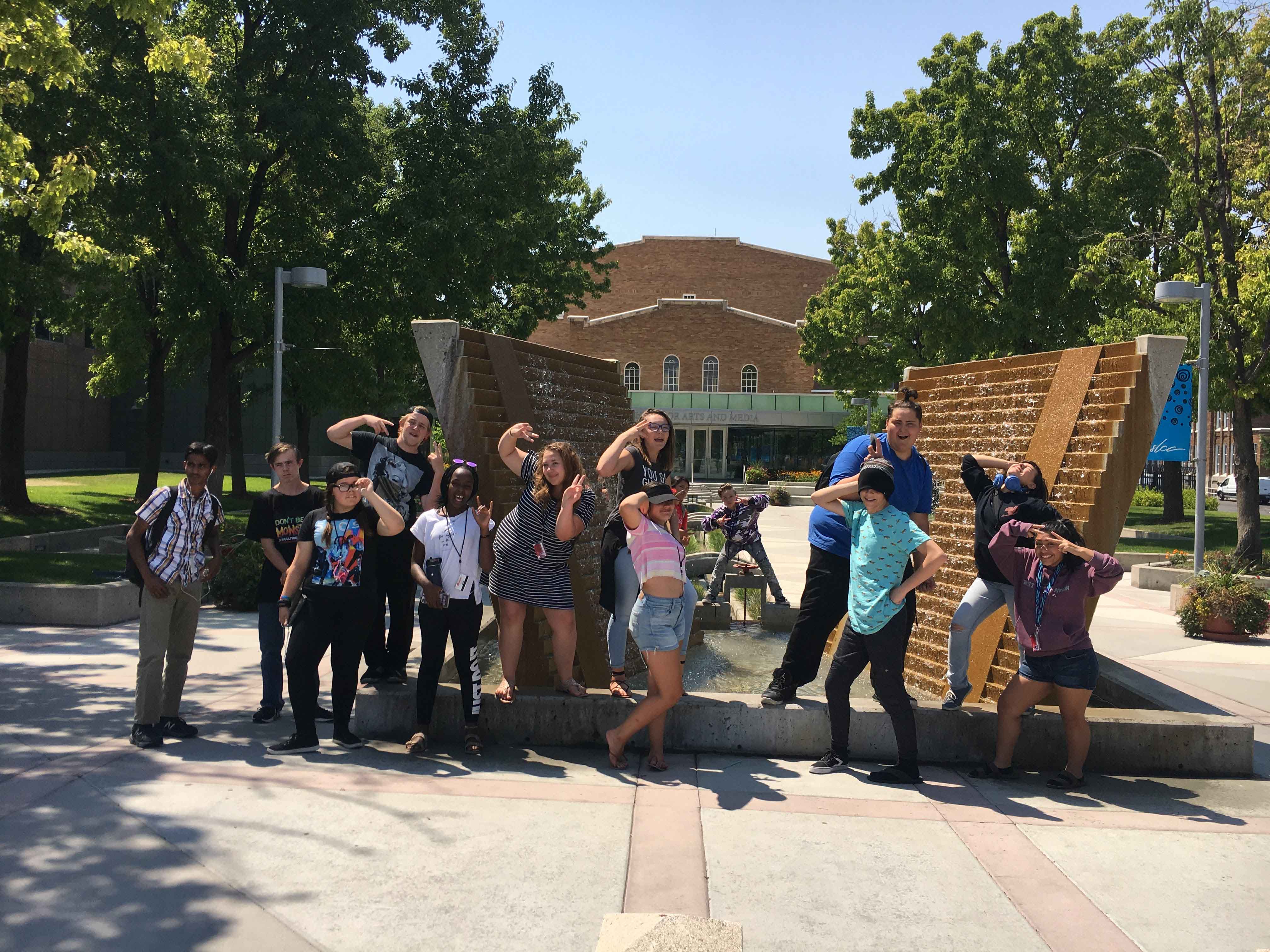Fostering Success
 Last summer, Bachelor of Social Work student Jessica Goulding spent her days goofing
off with teenagers.
Last summer, Bachelor of Social Work student Jessica Goulding spent her days goofing
off with teenagers.
Okay, so that’s an oversimplification. But when we talked with Jessica about her practicum experience with the foster youth program First Star, she emphasized that working with this population was significantly different than any negative stereotype that might exist around work with foster youth.
“I’m surprised how effortless it was,” she said. “These kids are motivated and want to be there. Sure, sometimes they’re moody, uncooperative, or difficult—but so are regular teenagers. They are also willing and well adjusted. The things you encounter here are the same as what you would encounter with any teenager.”
So what exactly is First Star? It’s a national nonprofit organization committed to helping foster youth gain the academic, life skills, and adult support they need to transition from the foster system into higher education and adulthood. Trauma and frequent changes of schools make it difficult for foster youth to perform at their grade level. They rarely get the additional support and resources they need for academic success, due to the instability of their situation. Only half of foster youth graduate from high school and less than three percent go on to earn a college degree.
In the local chapter of First Star, students spend one month of the summer on the
University of Utah campus going to classes, building academic skills, and learning
valuable life skills. Workshops include topics like conflict resolution, making and
keeping friends, trying new things, learning about your passions, and how to communicate
more effectively. During the school year, groups meet one Saturday a month. Youth
go to classes the first half of the day and spend the second half of the day maintaining
the community they worked to build in the summer. 
Hoping to make as much impact as possible, First Star director Alexa Hudson emphasized the inclusive purpose of the program. “We pretty much admit any student whose behavior and attitude demonstrate their willingness to commit.” This is a population that encounters a lot of instability, and First Star is committed to providing a stable support system of them.
Jessica explained this is one of the core reasons First Star does what they do. “This program is providing opportunity and community to people who haven’t had it otherwise, through no fault of their own.”
Conscious of ways kids might be re-traumatized by unthinking adults, First Star does everything possible to minimize this through extensive training before their employees, called “youth coaches,” work with youth. They want coaches that can understand some of the unique issues these kids might be facing and support them through it. A lot of the First Star experience is about being able to be there, and showing youth how they can navigate issues that come up in their lives. “Many of these kids crave bonds with stable adults who can be trusted—stable, secure, adults walking them through regular teenager crap,” said Jessica.
The Salt Lake City program is new, but so far has had amazing results. Since fall of 2017, they’ve had a one hundred percent retention rate, despite the challenges of frequent changes in placements. Additionally, in every category measured, both academic and non-academic, student skills improved after the summer program. “It’s so rewarding to see the huge amount of growth these kids experience in that time,” said Jessica. “There is so much that is rewarding about this program.”
